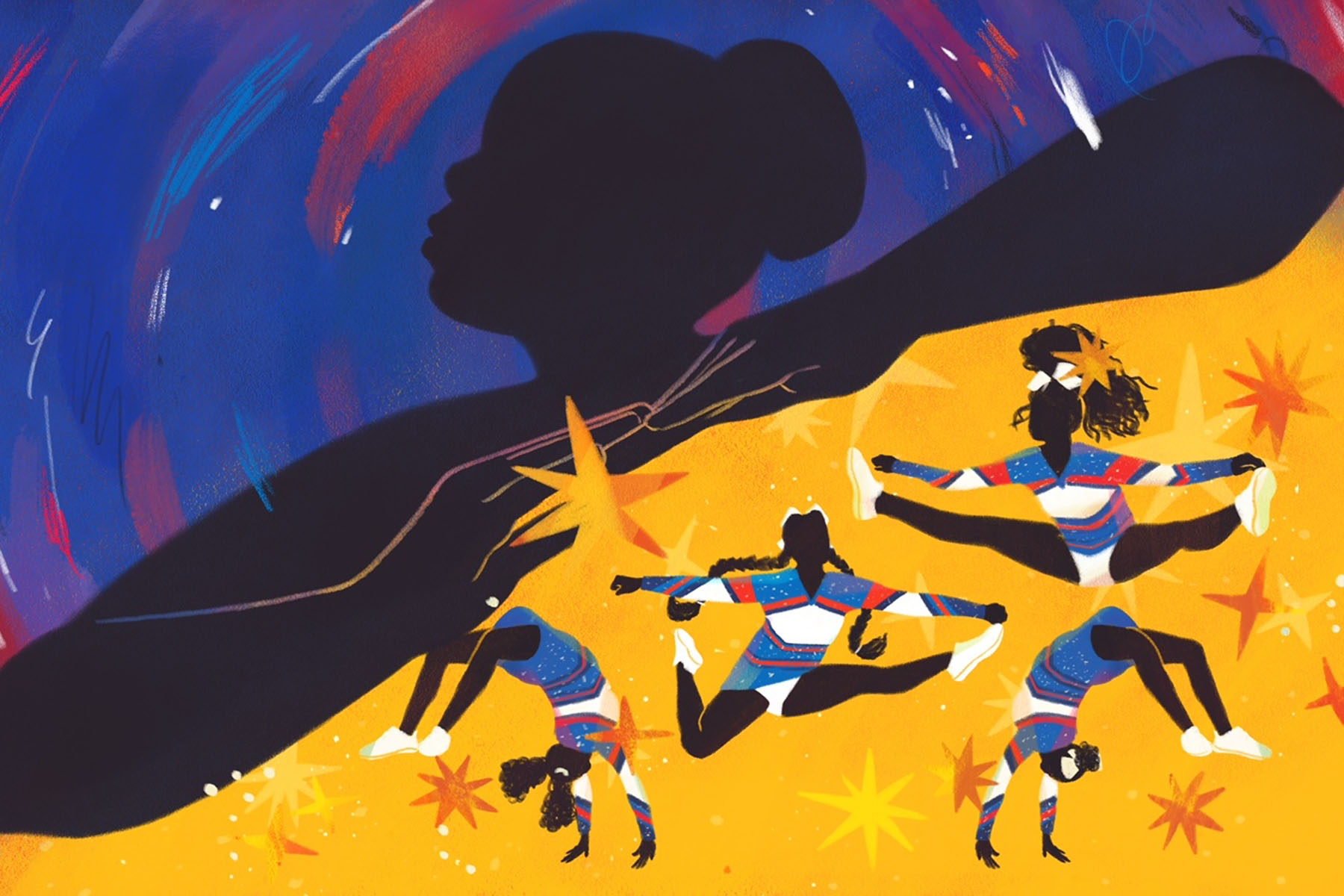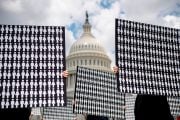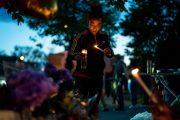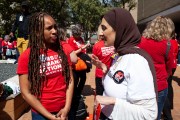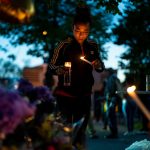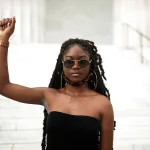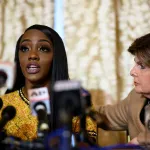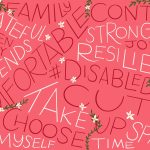We’re telling the untold stories of women, women of color and LGBTQ+ people. Sign up for our daily newsletter.
On May 14, 2022, a white supremacist walked into a Tops Friendly Markets store on the East Side of Buffalo, New York, with an AR-15-style rifle and opened fire. The shooter intentionally chose this grocery story in the predominantly Black neighborhood: He murdered 10 people and injured three; all the victims were Black.
The shooting left the Buffalo All-Star Extreme (BASE) gym reeling. The gym, only blocks away from Tops, was founded as a safe haven, home to one of the few all-Black girls’ all-star cheer teams in the country. Head coach Ayanna Williams started it in 2013 to let Black girls thrive in the predominantly White world of competitive cheerleading. Although most of the girls who cheered there did not lose an immediate family member, all of them deeply felt the impact of the way gun violence and racism had announced themselves so close to the spot so many of them thought of as a second home.
Nineteen-year-old Na’kya McCann tells the story of how the BASE gym — and East Buffalo — grappled with the fallout in the new podcast she is hosting for NPR, “Buffalo Extreme.” McCann grew up cheering with BASE and was serving as a junior coach at the time of the mass shooting. Throughout the podcast, McCann, now a college sophomore, interviews Williams — known to the girls at the gym as Coach Yanni — as well as her former teammates, their mothers and other coaches. The podcast seeks to correct for something that happens too often in journalism — especially in the face of tragedies such as mass shootings — by letting the people most impacted speak on their own terms about their pain, trauma, loss and the path forward.
“My feelings were honestly just all over the place,” McCann told The 19th about the immediate aftermath of the shooting. “I didn’t understand what was really going on, because I was asking my mom what was going on and was I going to be OK, and there were no answers. That put me into a sense of, ‘If my mom doesn’t know, then we are screwed.’ You want your parents, your mother, to have those answers to the kinds of questions I was asking.”
-
Read Next:
McCann felt an immense obligation to the girls she coached at BASE. Knowing that many were likely having similar feelings — fear, confusion, depression, anxiety, anger — McCann took initiative and sat with them, listening to them and helping them find confidence as they grappled with violent racism.
As she began work on “Buffalo Extreme” in May 2022, the same month as the shooting, McCann said she was surprised to find that making the podcast became a mechanism for finding some of those answers she and others were looking for.
“Buffalo Extreme” premiered May 11 as part of NPR’s documentary podcast series “Embedded”; the three-episode podcast concludes June 8, with each episode centering McCann as the listener’s entry point and guide to her home. Children as young as 4 attend BASE; for “Buffalo Extreme,” McCann focused on the girls on the youth team (ages 9 to 11) and on the senior team (ages 14 to 18). McCann conducted a dozen interviews with her BASE family from the weeks after the shooting through Mother’s Day weekend 2023 to capture what the past year in their community has been like.
McCann didn’t initially think she was a good fit for hosting “Buffalo Extreme.” When NPR reporter and producer Marianne McCune reached out to her, McCann told her she should find someone who had a closer firsthand connection to the shooting. “I felt like I wasn’t the right person to do this because I did not lose anybody close to me or related to me in the shooting,” McCann said.
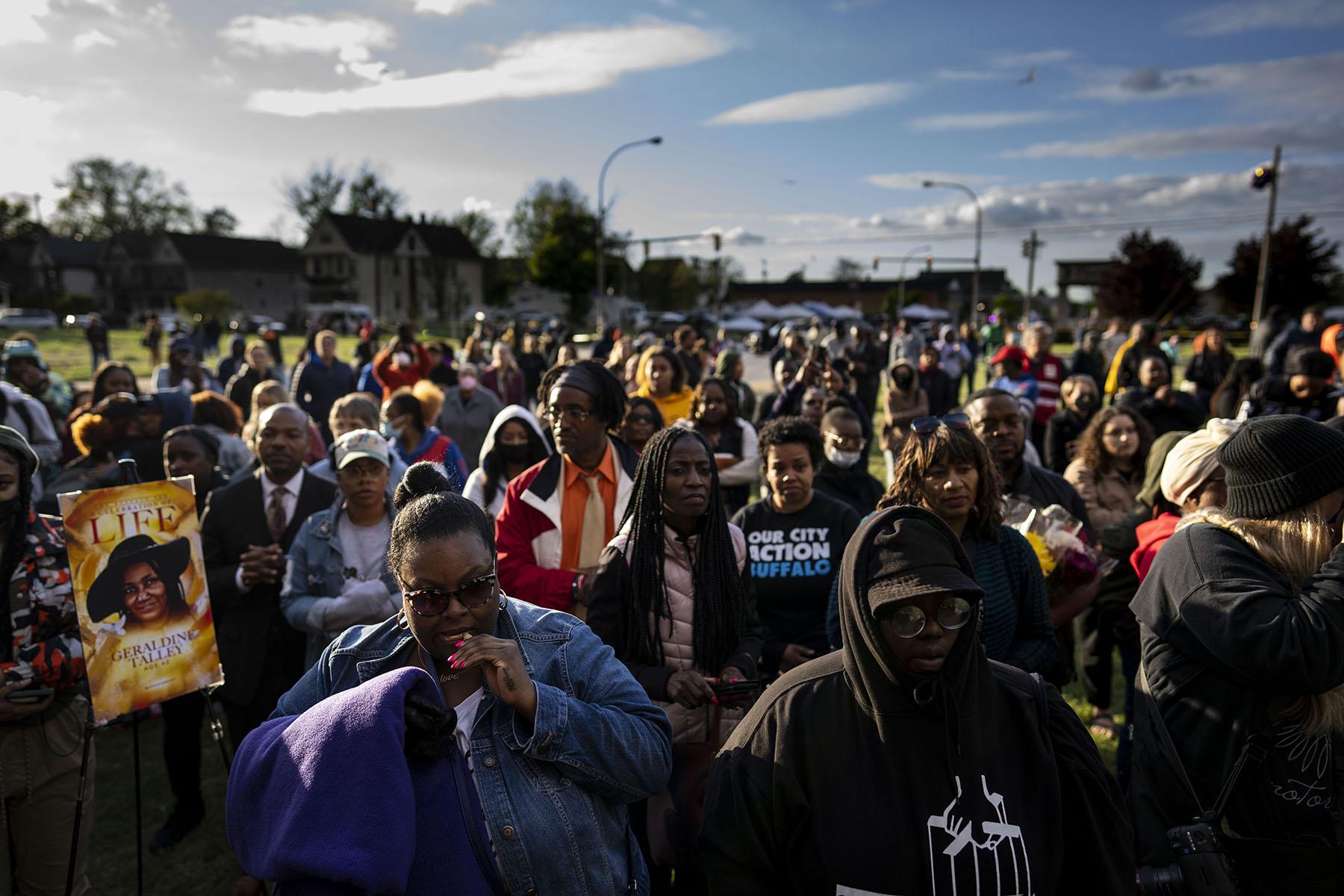
McCune, for her part, said she knew that McCann should host it after she saw her quoted in an article in The New York Times in the days following the shooting, discussing how she talked to the girls she coaches about what their community had just experienced. McCann told the reporter that she wanted to teach her cheerleaders how to love themselves in the face of hate, that “their negative energy doesn’t have anything to do with us.” After reading this quote, McCune said all she could think was how much she wanted to follow McCann and her team for a year and provide audiences with a window into the conversations they were having among themselves, in their home and at the gym.
McCune’s experience as a reporter and a producer showed her how often media coverage on both mass shootings and white supremacist actions often focus on the “day of or the day after, or maybe the week after.” McCune and NPR said they wanted to produce coverage about gun violence and racism that went beyond that. In McCann, McCune, who is White, saw someone who was helping a community — and herself — process.
“Here was this person who is able to have these conversations with young people so effectively,” McCune said. “I knew I wanted to work with her to tell this story.”
McCann found that the further she got into her work on “Buffalo Extreme,” the more it became a way of letting her process her very raw feelings. As she began to interview others, she found herself thinking, “You know what? My feelings are very real. And there are people out here that feel the same way in my city, people who feel the exact same way as me.” McCann said that while hosting the podcast, “I kind of got my closure emotionally, because I was not the only one who feels this strong urgency and all of these emotions about this situation.”
McCann came to find what she eventually understood to be a “viral effect” that the shooting had had on her East Side community. “Whether it was people that did lose somebody or people that didn’t — and I was in that group of people who didn’t, as was my cheer family and my own family — it was shocking to see the spiral effect of one thing just go down through the generations. I saw it in my mom, and I saw it in the BASE kids.”
Hearing from her peers and the girls she coached at BASE made McCann think differently about an ever-present platitude heard in a news cycle frequently dominated by news of horrific gun violence: that children are resilient.
“A lot of the BASE kids I have interviewed, they were forced to grow up,” McCann said. “They were forced to grow up because of the emotions they encountered while trying to work through this terrible shooting. They had to force themselves to become emotionally in tune with themselves because of the shooting.”
-
Read Next:
In mentoring McCann through her first experience as an interviewer and host, McCune said she encouraged McCann to lean into her instinct to let people know from the beginning that “it’s OK to share all of your thoughts.” That allowed McCann to listen deeply, especially to children who are absorbing and processing an experience no child should ever have to think about.
“They felt so strongly in their hearts what was going on, and it’s sad to realize that it took this for them to learn that white supremacy is a thing, that Black versus White is a thing, and now on top of that, they are scared to go to school. Some of them are still scared to go to the grocery store. They’re scared and they’re looking over their shoulders,” McCann said. “These things that maybe all were in the back of their minds before are now in the front of their mind and are something they need to think about constantly because of this shooting.”
McCann said social media frequently came up in her interviews with the girls from BASE. Everyone she spoke to had seen the video of the shooting on social media. One of the girls McCann interviewed recites the audio component of the video verbatim on the first episode of the podcast.
“No child should ever have to do something like that. Nobody in general should have to ever see that. But they are so hands-on with technology. Technology is their best friend. So even if they weren’t there, they were seeing it first hand,” McCann said.
McCann said she feels like most media coverage of mass shootings fails to take into account the impact of social media — which is why it is something the podcast leans in to, underscoring that even those who were not on the physical scene of the shooting have been deeply impacted by the violence.
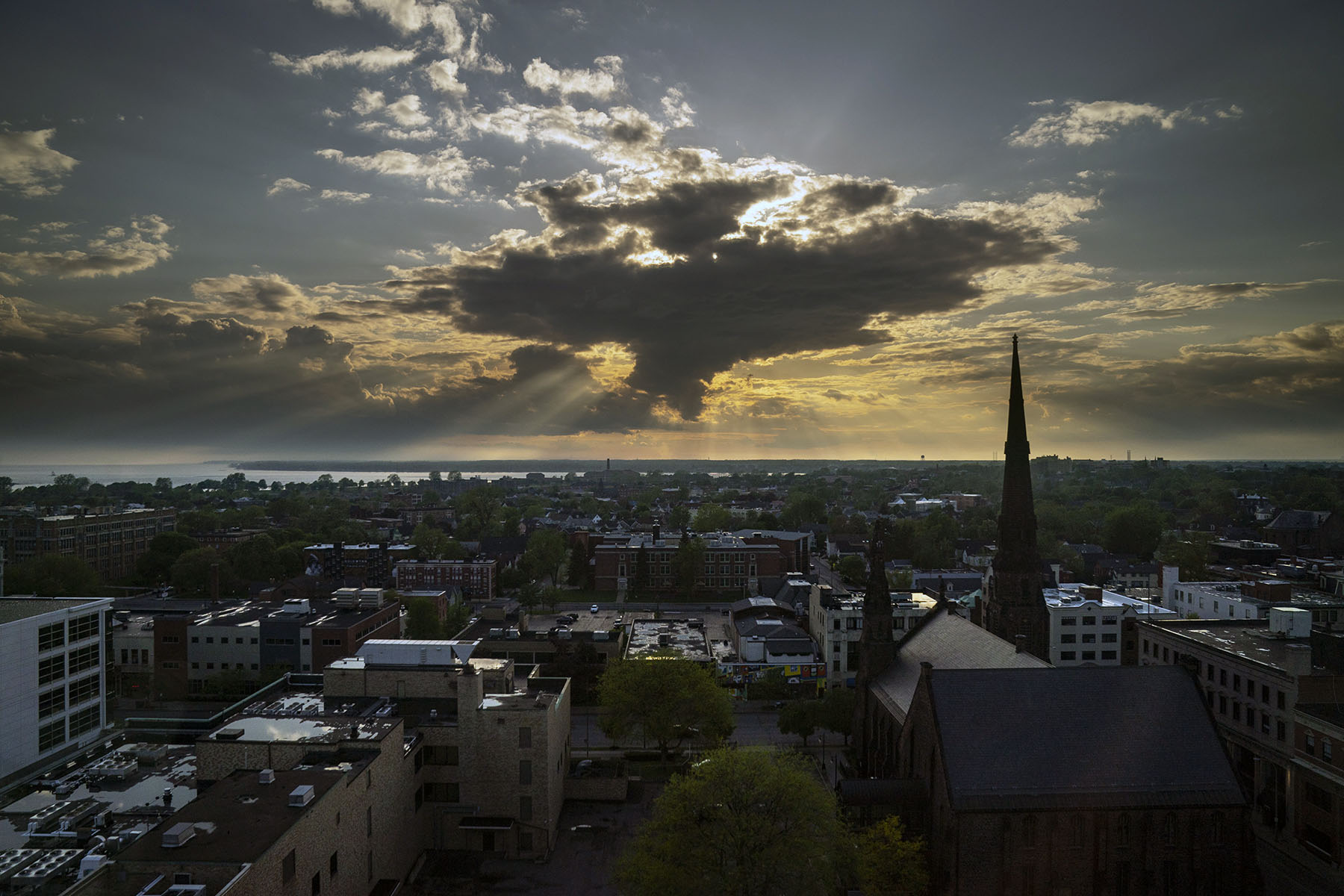
“Something I think that is important that we’re doing and that can be done more is having these conversations about what kids consume,” McCune said. “That even if they weren’t there, they are saying, ‘I saw this, this and this happen’ … and then having to shove it all down but having these images in your head. The conversations we have here are one step toward asking, ‘How do we live with social media in this kind of a situation?’”
Also often not seen in media coverage of mass shootings, McCann said, is how the community tried to find ways to heal: the prayer groups, the rallies, the neighbors checking on one another. Having been someone who has now been on both sides of the media coverage surrounding the Buffalo mass shooting, McCann said she thinks about how in the initial days and weeks after the shooting, “We felt like we were in a zoo — and everybody got their picture and then they left.”
Part of showing the healing process of East Buffalo meant shining a light on BASE and what it means to so many girls in the community.
“It is a safe space. A lot of girls can find that they are happy and proud to go to practice after school there, even when it feels frightening for them to be who they are,” McCann said.
McCann thinks about the capacity projects like “Buffalo Extreme” have to reframe the conversation around the impacts of mass shootings.
“Something bad happened to me and I turned it into a positive — a podcast that shows people that if something bad happens, there’s also good people that come out. Natural-born leaders really come out. There are hard-working people that come out,” she said. And she hopes the children and young adults of Buffalo’s East Side see these people and their stories.
McCann is studying social work in college and now plans to take journalism classes as well. In the future, she hopes to make her own podcast that she not only hosts but produces. She also hopes to come back to Buffalo and open another community center, a place where children can come and grow strong and thrive.
Hosting the “Buffalo Extreme” podcast has made McCann think deeply about what she hopes the future will hold for the young girls she interviewed in this project — and all the children who will come after them and what it will mean for them all to grow up among this legacy of a community that survived a deadly white supremacist attack.
“I want these children to take all of this and really, really turn it around for the future — which means saying not like, ‘Oh, I survived a mass shooting,’ but ‘I survived something that impacted me and my city and I want to turn it into something positive to make sure that stuff like this never happens again.’ People want you to be a sob story. They want you to be sad. But I want [the children of Buffalo] to take what happened to them and their feelings and turn into something positive … and then spew it out into the world,” McCann said.
